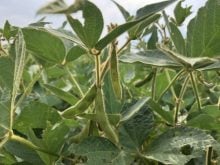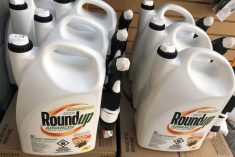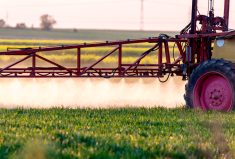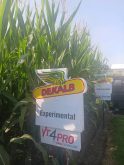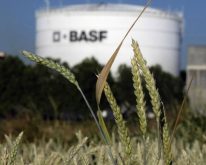Chicago | Reuters — U.S. seeds and agrochemicals company Monsanto, in the process of being bought by Germany’s Bayer for US$66 billion, swung to a quarterly profit, helped by higher demand from South America.
Sales of soybe2an seeds and traits jumped 37 per cent as more farmers in South America sowed the company’s genetically modified soybean seed Intacta RR2 Pro.
But how Monsanto is navigating through a souring U.S. agricultural market has been closely watched by Bayer’s investors, who have backed the German pharmaceutical conglomerate’s bid to acquire the world’s largest seed company.
Read Also
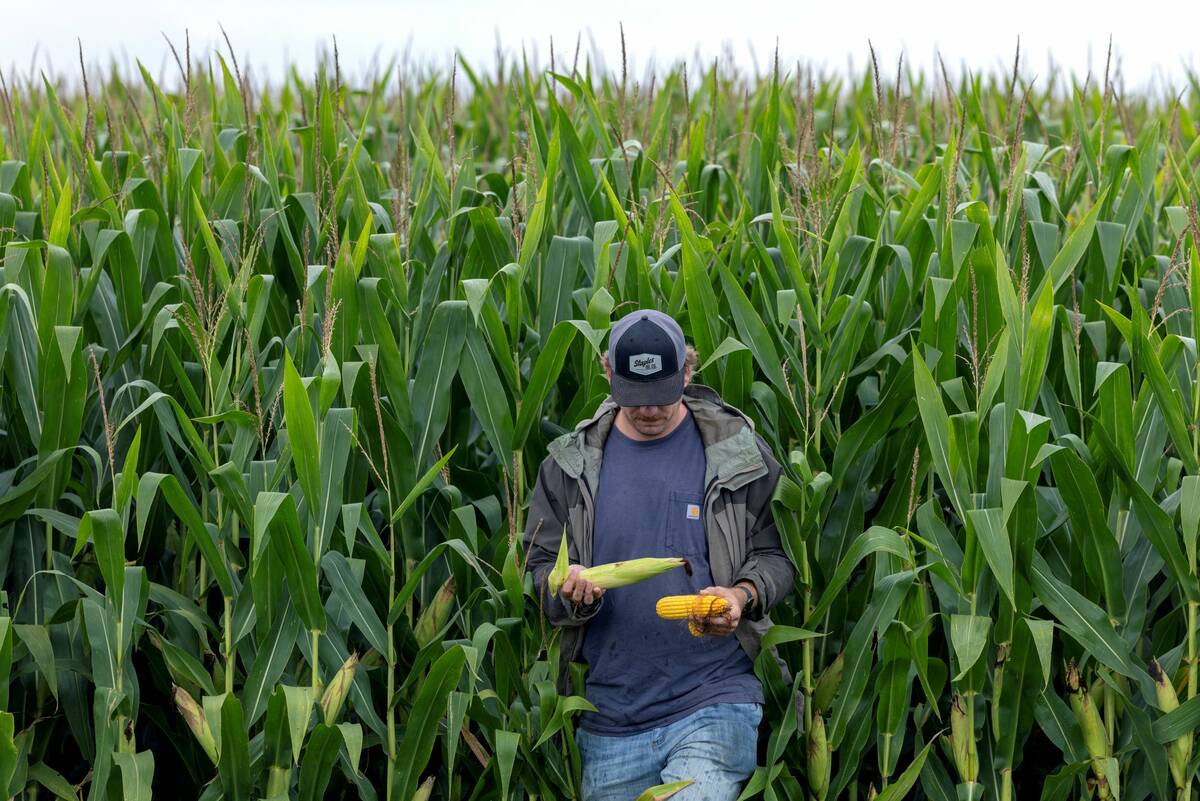
The U.S. corn crop could be the biggest ever. That’s terrible news for America’s farmers.
The USDA predicts a record corn crop for U.S. farmers, who question the agency’s accuracy amidst high debt and low crop prices.
Monsanto shareholders voted in December to approve a sweetened $128-per-share offer from Bayer that, if approved by regulators, would create a company commanding more than a quarter of the world market for seeds and pesticides and be the largest-ever cash takeover of a U.S. company (all figures US$).
Both companies have filed notice of the merger plan to U.S. antitrust officials and plan to submit similar documents to the European Union by the end of March, CEO Hugh Grant told analysts on a conference call on Thursday for Monsanto’s first fiscal 2017 quarterly results.
Bayer and Monsanto executives have repeatedly said they are confident the deal will pass regulatory muster, a necessary step in order to close the sale as expected in late 2017. Bayer has said it is committed to divest up to $1.6 billion of its portfolio to win approval.
Still, some farm groups, rival seed companies and U.S. lawmakers have raised concerns about the Monsanto-Bayer deal, saying it could raise prices and reduce choices for farmers.
While Grant did not discuss what business units or assets might be sold off to appease regulators, he did tell analysts on Thursday that “where overlaps do exist, Bayer anticipates and is committed to undertake a certain level of divestitures as required by regulatory agencies.”
Increased research and development spending by the combined companies and plans to develop a global seeds and biotechnology hub in St. Louis fuel hopes regulators will not block the deal, which was agreed in September, Grant told Reuters.
Grant also told analysts that he and chief technology officer Robb Fraley have been taking an active role in talking to farmers about the proposed deal, as well as talking to “key policymakers and politicians” to assuage concerns.
Monsanto also announced Thursday it had recently signed an agreement with Japanese trading firm Mitsui and Co. to sell its Latitude wheat and barley fungicide seed treatment business for $140 million — and expects to receive an EBIT benefit of approximately $85 million in that business segment in the second quarter.
Monsanto told Reuters that the agreement for Latitude — a fungicide used to reduce take-all in cereal crops — is part of ongoing restructuring efforts, and not tied to the Bayer deal.
Net profit attributable to Monsanto was $29 million, or seven cents per share, in the first quarter ended Nov. 30, compared with a loss of $253 million, or 56 cents per share, a year earlier.
Excluding items, the company earned 21 cents per share. Net sales rose more than 19 per cent to $2.65 billion.
— P.J. Huffstutter reports on agriculture and agribusiness for Reuters from Chicago. Additional reporting for Reuters by Arathy S Nair in Bangalore.



